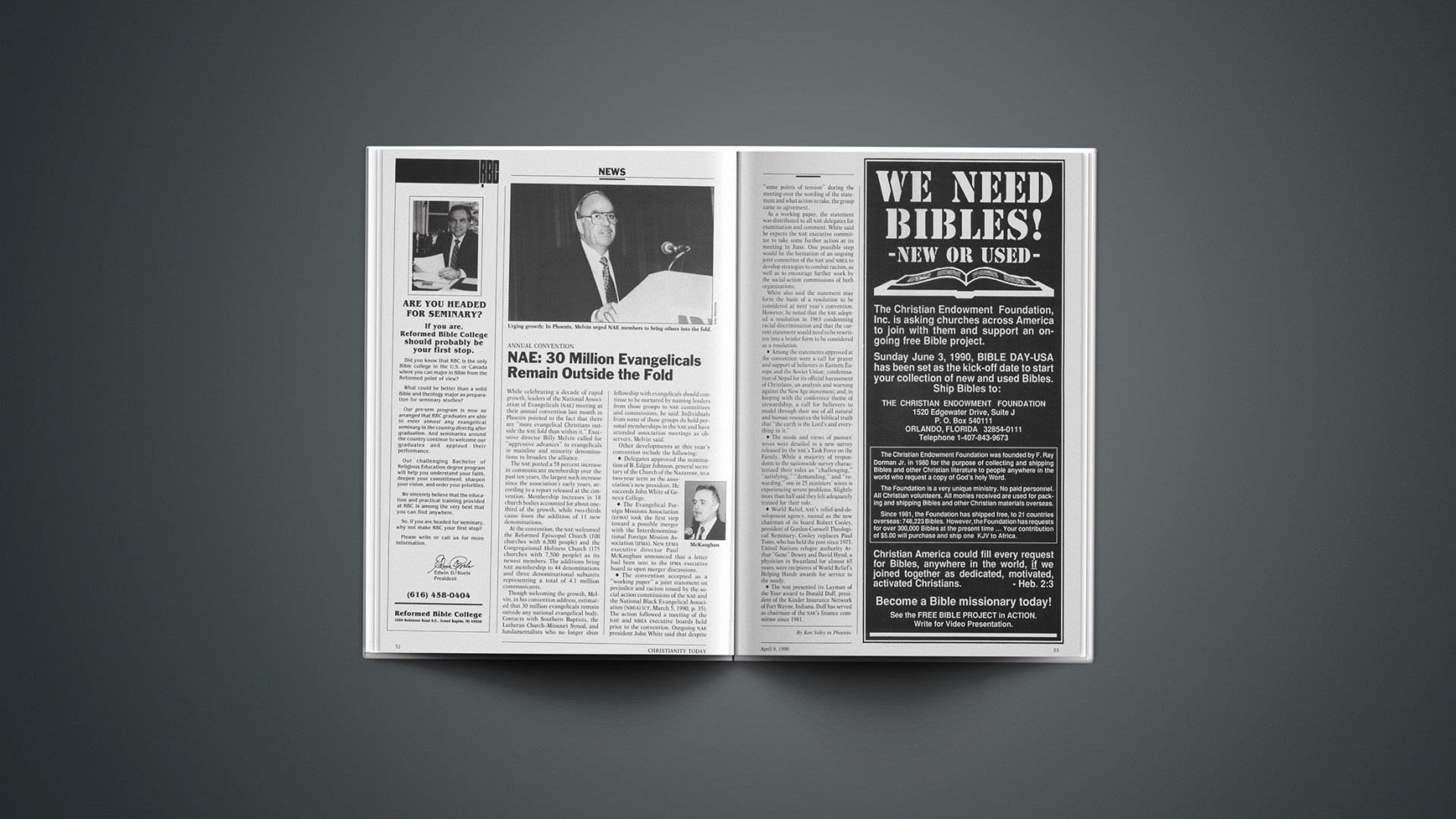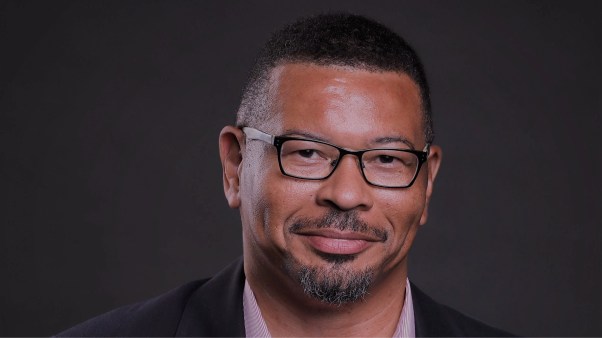While celebrating a decade of rapid growth, leaders of the National Association of Evangelicals (NAE) meeting at their annual convention last month in Phoenix pointed to the fact that there are “more evangelical Christians outside the NAE fold than within it.” Executive director Billy Melvin called for “aggressive advances” to evangelicals in mainline and minority denominations to broaden the alliance.
The NAE posted a 58 percent increase in communicant membership over the past ten years, the largest such increase since the association’s early years, according to a report released at the convention. Membership increases in 18 church bodies accounted for about one-third of the growth, while two-thirds came from the addition of 11 new denominations.
At the convention, the NAE welcomed the Reformed Episcopal Church (100 churches with 6,500 people) and the Congregational Holiness Church (175 churches with 7,500 people) as its newest members. The additions bring NAE membership to 44 denominations and three denominational subunits representing a total of 4.1 million communicants.
Though welcoming the growth, Melvin, in his convention address, estimated that 30 million evangelicals remain outside any national evangelical body. Contacts with Southern Baptists, the Lutheran Church-Missouri Synod, and fundamentalists who no longer shun fellowship with evangelicals should continue to be nurtured by naming leaders from those groups to NAE committees and commissions, he said. Individuals from some of those groups do hold personal memberships in the NAE and have attended association meetings as observers, Melvin said.
Other developments at this year’s convention include the following:
• Delegates approved the nomination of B. Edgar Johnson, general secretary of the Church of the Nazarene, to a two-year term as the association’s new president. He succeeds John White of Geneva College.
• The Evangelical Foreign Missions Association (EFMA) took the first step toward a possible merger with the Interdenominational Foreign Mission Association (IFMA). New EFMA executive director Paul McKaughan announced that a letter had been sent to the IFMA executive board to open merger discussions.
• The convention accepted as a “working paper” a joint statement on prejudice and racism issued by the social action commissions of the NAE and the National Black Evangelical Association (NBEA) (CT, March 5, 1990, p. 35). The action followed a meeting of the NAE and NBEA executive boards held prior to the convention. Outgoing NAE president John White said that despite “some points of tension” during the meeting over the wording of the statement and what action to take, the group came to agreement.
As a working paper, the statement was distributed to all NAE delegates for examination and comment. White said he expects the NAE executive committee to take some further action at its meeting in June. One possible step would be the formation of an ongoing joint committee of the NAE and NBEA to develop strategies to combat racism, as well as to encourage further work by the social-action commissions of both organizations.
White also said the statement may form the basis of a resolution to be considered at next year’s convention. However, he noted that the NAE adopted a resolution in 1963 condemning racial discrimination and that the current statement would need to be rewritten into a briefer form to be considered as a resolution.
• Among the statements approved at the convention were a call for prayer and support of believers in Eastern Europe and the Soviet Union; condemnation of Nepal for its official harassment of Christians; an analysis and warning against the New Age movement; and, in keeping with the conference theme of stewardship, a call for believers to model through their use of all natural and human resources the biblical truth that “the earth is the Lord’s and everything in it.”
• The needs and views of pastors’ wives were detailed in a new survey released by the NAE’s Task Force on the Family. While a majority of respondents to the nationwide survey characterized their roles as “challenging,” “satisfying,” “demanding,” and “rewarding,” one in 25 ministers’ wives is experiencing severe problems. Slightly more than half said they felt adequately trained for their role.
• World Relief, NAE’s relief-and-development agency, named as the new chairman of its board Robert Cooley, president of Gordon-Conwell Theological Seminary. Cooley replaces Paul Toms, who has held the post since 1975. United Nations refugee authority Arthur “Gene” Dewey and David Hynd, a physician in Swaziland for almost 65 years, were recipients of World Relief’s Helping Hands awards for service to the needy.
• The NAE presented its Layman of the Year award to Donald Duff, president of the Kinder Insurance Network of Fort Wayne, Indiana. Duff has served as chairman of the NAE’s finance committee since 1981.
By Ken Sidey in Phoenix.










